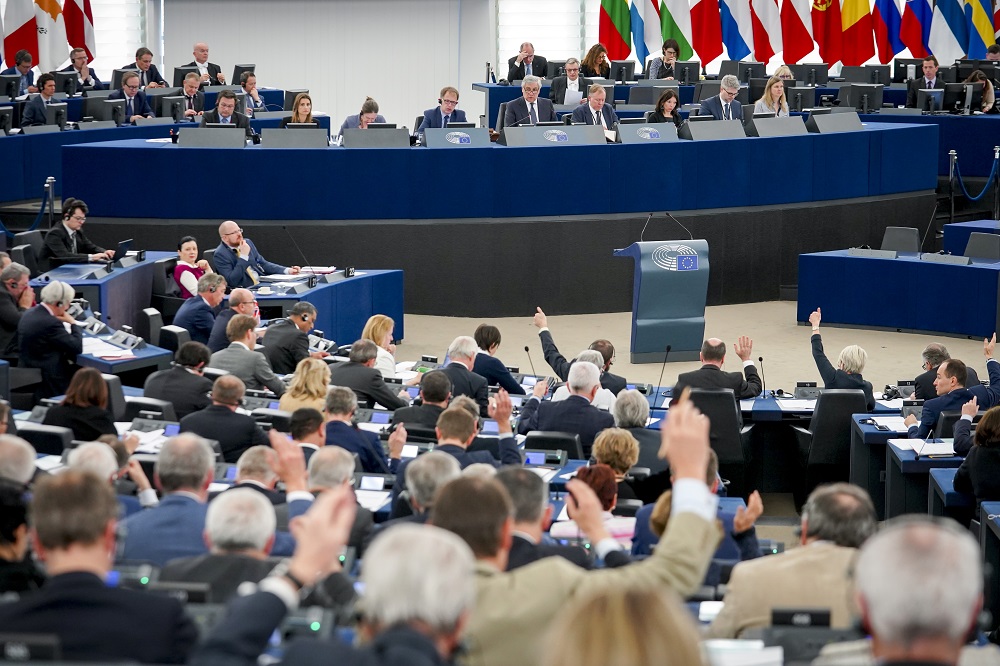
As the only European Union institution elected directly, the European Parliament is at the heart of representative democracy, the foundation upon which the EU is built. Since its creation, the Parliament’s power and influence have evolved significantly, transforming it into a full-fledged legislative body and forum of discussion and engagement, whose influence is felt in virtually all areas of EU activity.
First of all, the Parliament does what most parliaments do – it adopts legislation, mostly together with the representatives of the national governments of the Member States (the Council). The number of areas in which the Parliament co-legislates with the Council has expanded greatly over time, and now includes policies concerning the EU internal market, environment, consumer protection, food safety, justice and home affairs, cohesion policy, transport, energy and many others. Law-making is also about international action. When the EU enters into an international agreement with a third country, for example, the Parliament must give its consent.
Next, the Parliament has power over the EU budget. This power is also shared with the Council, and its extent varies according to the different aspects of the EU financial system. Its role is less developed when deciding about the revenue side of the budget (own resources system), stronger in shaping the EU’s long-term spending priorities included in the multiannual financial framework, and stronger still in the context of the procedure for approving the implementation of the budget, known as the discharge procedure. The Parliament decides on the EU’s annual budget on equal terms with the Council.

Another important set of EP prerogatives concerns the scrutiny and control of the executive, namely the European Commission. The latter regularly reports to and informs the Parliament of its activities and responds to parliamentary questions. Moreover, the Parliament plays a crucial role in the appointment and dismissal process of the Commission. The most recent prominent illustration in this regard is the Spitzenkandidaten process, which led to the election of Jean-Claude Juncker as Commission President in 2014. The Parliament remains firmly committed to repeating and consolidating the process in 2019, and many European political parties have selected their lead candidates for the position of the next Commission President. After the election of the Commission President, and following parliamentary hearings with individual Commissioners-designate, the college of Commissioners as a whole must be approved by the Parliament before it can take office. The next Commission investiture process, which will take place not long after the 2019 European elections, will offer a major opportunity for the Parliament to shape the agenda of the Commission over the coming five years (2019-24). Besides its role in the Commission’s appointment, the Parliament may also force the resignation of the Commission (by a motion of censure), which is one of its oldest prerogatives.
In addition to adopting laws and overseeing the executive, the Parliament also has powers relating to the very nature of the EU and its institutional/constitutional foundations. Parliament’s consent is required before any new country joins the EU, and its consent to the withdrawal treaty is required before a country can leave the EU. The Parliament may initiate a Treaty revision process and must give its consent before it is decided that an EU Member State is breaching (or is about to breach) the values of the EU.
Finally, besides its formal legislative and scrutiny powers, the Parliament functions as a forum for debate and engagement, putting matters on the political agenda, debating and raising awareness. For example, since January 2018, the Parliament has hosted a number of national leaders invited to debate and share their visions on the ‘Future of Europe’.
Read the complete In-depth Analysis on ‘The power of the European Parliament‘ in the Think Tank pages of the European Parliament.








but the Parliament has no power to request anything from the Commission, hence the pen-pushers have de-facto the real muscle
[…] Source Article from https://epthinktank.eu/2019/05/02/the-power-of-the-european-parliament-examples-of-ep-impact-during-… […]